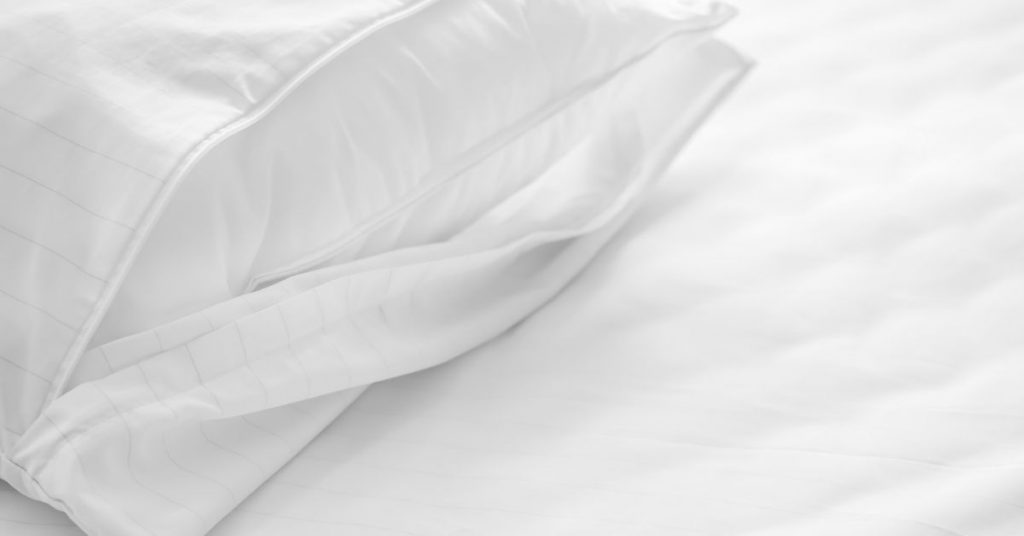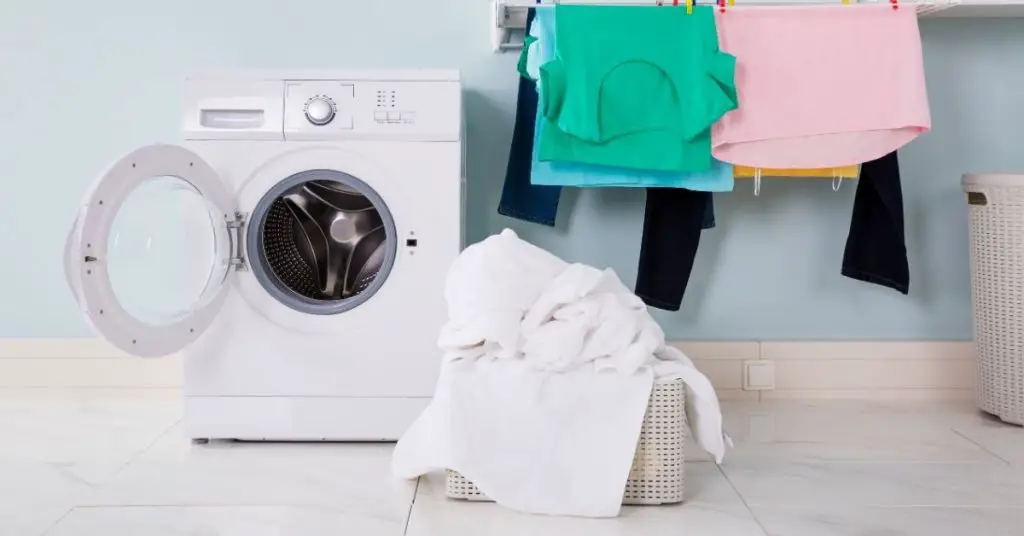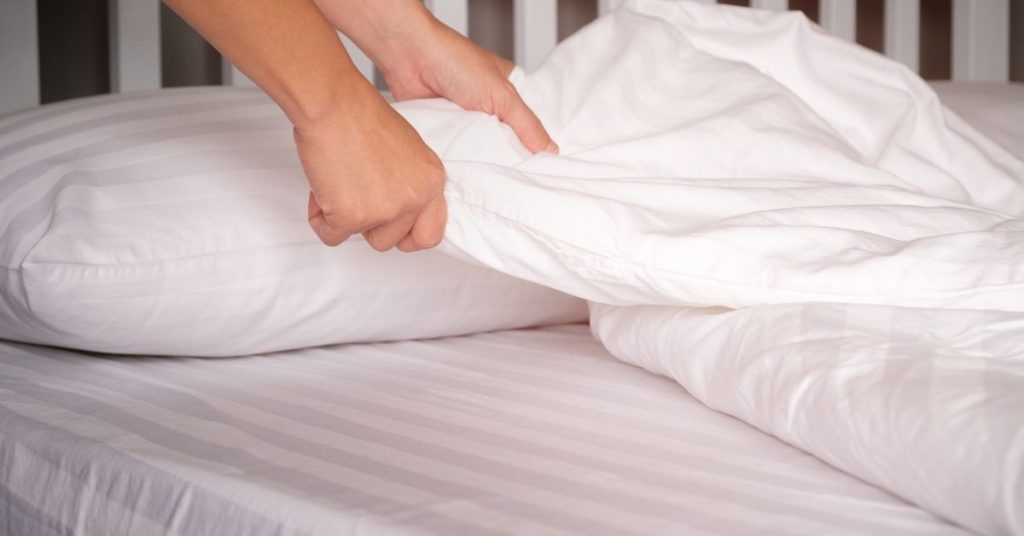How Often Should You Change Your Sheets on Your Bed
The short answer to how often should you change your sheets is once a week, or at least once every two weeks.
This number is a general estimate and will vary depending on health conditions, living situation, or personal preference.
But to keep things simple, you should wash your bedsheets as much as you reasonably have time for, within the range of 1-2 weeks.
There are also other factors you could consider, such as seasons, pets in the bed, sickness, whether you shower before sleep or in the morning.
In this post, we’ll discuss in detail how often you should wash your sheets and why.
We’ll also answer some bedsheet washing FAQs, including what temperature you should use to wash your bedding.
How Often Should You Change Your Sheets
Due to the things that build-up on our sheets during sleep, experts recommend washing bedding once a week.
However, although we agree that it is the best way to keep sheets as clean as possible, this isn’t always possible for busy households.
Cleaning multiple sets of bed sheets every week can seem like a full-time job, especially with the added laundry load from kids having accidents in the night.
If you don’t have time to wash your sheets once a week, then washing them every two weeks won’t do any harm.
A weekly schedule of sheet-washing just isn’t reasonable or practical for many of us.
So as long as you’re changing your sheets once every two weeks, then it’s highly unlikely you’ll experience any problems.

Plus, everybody’s circumstances are different, so don’t just do what other people are doing.
Consider these things when deciding how often to change your bedding:
- Do you have pets – and do they go in the bedrooms or sleep on the bed?
- Do you eat or drink in bed?
- Has anybody been ill in your household?
- Do you shower before or after sleep?
- Do you take naps in the day in clothing that has been outside/in public?
- Are you a sweaty sleeper?
- Do you take off your makeup before bed?
- Have you got any allergies or asthma?
- Do you sleep naked?
Taking these things into consideration should help give you a good idea of how often you need to change your bedsheets.
Even if you answered no to all of them, then you should still be washing your sheets once every two weeks, but it’s not the end of the world if you don’t have the time.
| According to this article from the Daily Mail, one in three Brits admits to only washing the sheets once a year or less! But, like with anything on the rather precarious news site, we won’t believe everything we read. |
Why You Should Change Your Bed Sheets Often
Changing bed sheets regularly comes down to the simple matter of hygiene.
Washing sheets removes sweat, bacteria, mites, and pet hairs.

A build-up of these things can lead to infection or other health conditions, particularly to those with allergies.
Unwashed bed sheets can also contribute to acne or breakouts.
We don’t want to scare you by going into too much detail about the things that live in our bedding but take a look at this list of potential health hazards that come from not washing your sheets from WebMD (if you dare…).
How Often Should You Wash Bed Sheets? FAQs
What is the best temperature to wash bedding?
Washing bed sheets at 60C/140F will kill the majority of bacteria and mites that build up on our bedding.
If you want to avoid using the hot wash setting, then washing at 40C/104F with a bleach-based laundry detergent will effectively kill germs and bacteria.
If you’re curious about when to use which temperature on the machine, you might also like our Ultimate Washing Machine Temperature Guide.
The UK’s NHS recommends that all underwear, towels, and household linen should be washed at 60C (140F) or at 40C (104F) with a bleach-based laundry product to prevent germs from spreading.
For more tips on how to remove bacteria from clothes, towels, and bedding, take a look at our guide What Temperature Kills Bacteria In A Washing Machine?
How do you kill bacteria on bedsheets?
Use a bleach-based laundry detergent and use a cycle of at least 40 centigrade or 104 Fahrenheit.
If you don’t have a detergent with bleach, a 60 centigrade 140 Fahrenheit cycle will kill the majority of bacteria on bedsheets.
The hot wash works just as well, but if you have colored, non-cotton sheets then this hot wash may fade the colors.
Using a hot cycle repeatedly can also start to disintegrate the fabrics, so we recommend investing in a bleach-based laundry detergent and using the 40-degree/104F wash.
Another downside to the 60-degree/140F wash is that it can use a lot of energy and increase bills.
What is the best bedding material for keeping a clean bed?
White cotton is ideal to use as bed sheets as it can be washed at very high temperatures without fading or deteriorating.
This means you can kill bacteria without worrying about colorful bedding losing its vibrancy.
Plus, it’s super soft and luxurious – and nothing beats that fresh cotton smell.
How often should you change sheets when sick?
When you’re sick, your bedding should be changed as much as possible, with the biggest priority being changing your pillowcase every single day.
Flu viruses can live on surfaces for 24 hours, but the common cold can survive for up to 7 days indoors!
If you don’t change your bedding during an illness, you’re essentially reinfecting yourself every time you go to bed.
How Often Should You Wash Your Pillowcase When Sick?
Changing your bedding and especially your pillowcase every day could shave days off your illness, so it’s absolutely worth the extra effort.
What happens if you don’t wash new sheets?
Brand new bedding or sheets may appear clean and crips in their packaging, but you need to remember that they were made in a factory and possibly sold in a store where numerous people have handled them with dirty or contaminated hands. So for peace of mind, it’s always a good idea to wash them as soon as you get them home so you can put them on your bed.
Manufacturers also use starch called sizing when making their sheets, this helps keep the sheets looking smooth and perfect in the packaging as no one will have wrinkled or untidy bed sheets that look awful in the packaging. However, sleeping on unwashed sheets that have this starch can irritate the skin and you may feel like you’re itching your body throughout the night.
Washing your sheets before using them will also help eliminate dyes or other chemical residues that are on the material so it won’t irritate or even leak onto your skin if you sweat in your sleep.
Once you wash your sheets, you’ll become aware of any defects with them as the washer may loosen strings, and any holes in the material may expand. If you have defective bed sheets, if they’re still under warranty then you may be able to return them and get a refund or a replacement.
You’ll only need to wash your new sheets one time before using them the first time and the best way to wash them with your regular washer detergent and fabric conditioner, or you could always use a homemade solution of baking soda and water to soften the bedsheets and you can use half a cup of vinegar before you rinse out to get rid of any bacteria on the material. Dry as you normally would or you can use a dryer sheet to make your sheets smell lovely.

Key Takeaways on How Often Should You Change Your Sheets and Why
With all that being said, we still think that the best frequency for bed washing is as much as you reasonably have time for.
The most important thing is to take into consideration your own lifestyle and preference and decide how often you should change your sheets based on that.
It’s easy to suggest washing sheets once a week, but as soon as you add kids, a full-time job, and general life-living, it becomes a bit unreasonable.
We think that if you don’t have any health conditions or allergies, then washing sheets at least every two weeks is perfectly fine and acceptable.
And of course, make sure that you are properly killing bacteria and other nasties when your sheets are being washed.
Another huge consideration is to make sure you are using the right products and washing cycles.
If you don’t, then you’re basically just making your bed sheets smell nice without actually doing a proper clean.
To properly remove bacteria in bedsheets, use a hot cycle and a bleach-based laundry detergent.
Doing these things will keep your bedding clean and fresh, and reduce the potential (but rare) illnesses that can come from poor bedsheet hygiene.
Related Cleaning Advice and Homekeeping Tips:
- What Temperature Kills Bacteria In A Washing Machine?
- The Ultimate Washing Machine Temperature Guide
- Should You Hoover Or Dust First? The Controversial Truth
- My House Is Messy, Where Do I Start?

